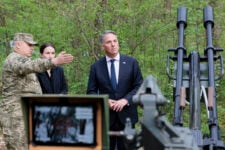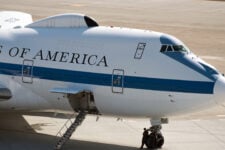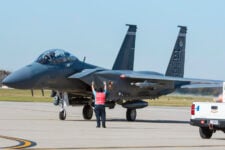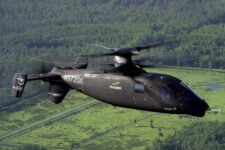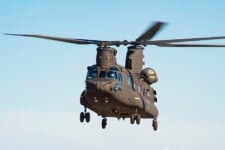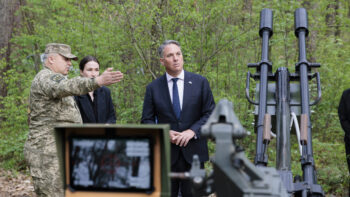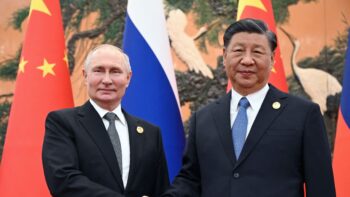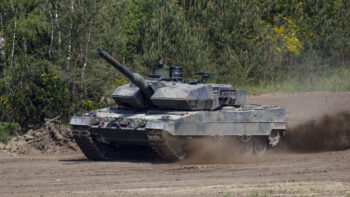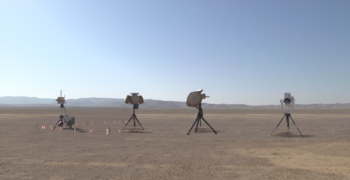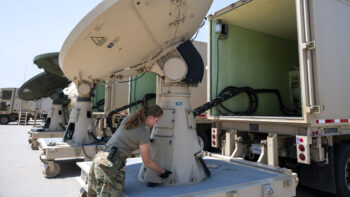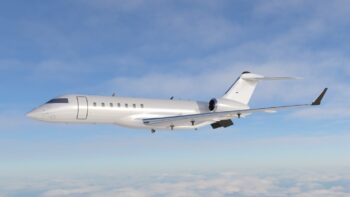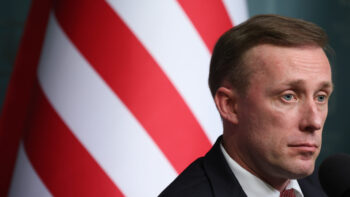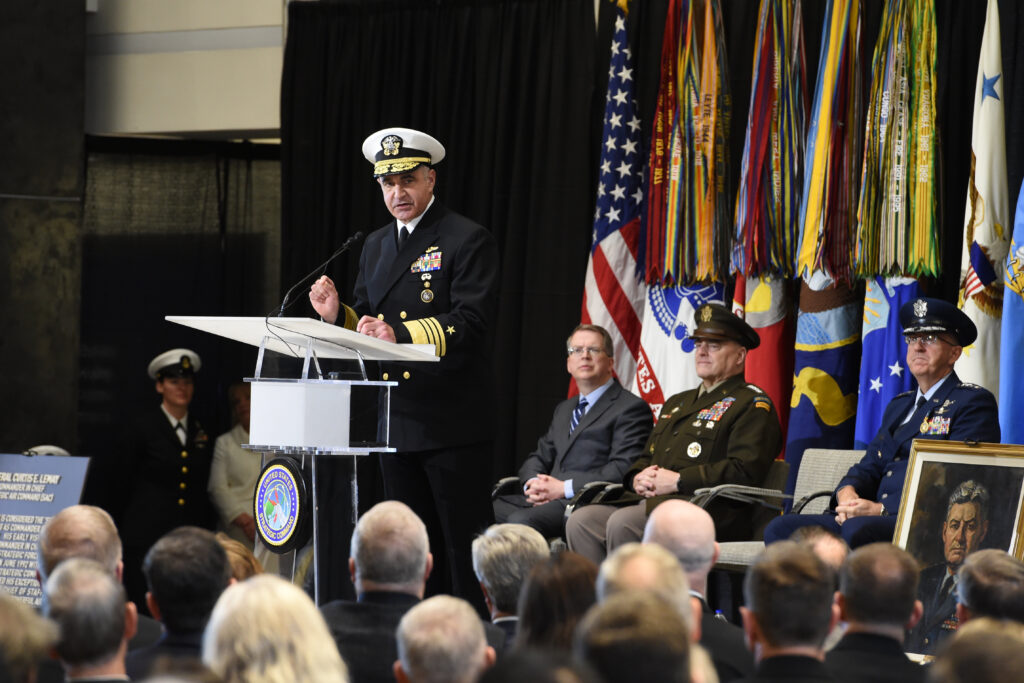
Adm. Charles Richard
UPDATED. WASHINGTON: Perhaps the most sensitive group in the US military, Strategic Command, currently has no cases of CORVID-19 at its Nebraska headquarters, and there are non among its Navy and Air Force component commands in the field, Adm. Charles Richard said today.
“To this point, we have no impact to our ability to accomplish our mission,” Richard stressed. “That said, this pandemic has our full attention.”
However, the STRATCOM chief told reporters in a virtual press conference, there are cases of “protected self-quarantine” — about 10 in HQ at Offutt AFB, Nebraska, and less than 20 each within the Navy and Air Force STRATCOM units — due to potential exposure.
While he demurred from speaking for Navy and Air Force commanders, Richard said that at headquarters the most common reason for self-quarantine was travel: “It’s just where you looked at somebody coming back off of travel or something like that, where you just wanted to be in an abundance of caution, making sure that you gave them a chance to see if they would get symptomatic.”
Richard noted that that US strategic forces are actually set up to operate for long periods of time in isolation. The measures being taken are based on guidance of the Defense Department and the Centers for Disease Control about barring large gatherings and limiting contact.
For example, he noted that he and his deputy are staying separated (social distancing) — mimicking the Pentagon’s decision to keep Secretary of Defense Mark Esper and his deputy, David Norquist, separate to minimize the possibility of both of them contracting the disease. In addition, he said, many meetings are now being held virtually.
He refused to go into specifics about how STRATCOM is handling deployment of missileers manning ICBM silos in Wyoming, Montana and North Dakota. Normally, crews do a 24-hour shift, and Richard demurred on questions about whether those shifts might have been lengthened.
Noting that the strategies at the ICBM fields and at STRATCOM HQ were pretty similar, Richard instead rattled off a set of general steps the command has put into place at the missile bases. “We’ve minimized contact on critical watch spaces; we’re not doing tours down on them anymore; we’re looking to see that we minimize the cross section for exposure; you go into pre-screens for your people who are going in; and you have contingency plans to pre-quarantine or separate out people — pre-isolate them — to make sure they have a minimum risk of infection,” he said.
In response to questions about access to medical supplies, such as ventilators, Richard explained that STRATCOM is just another customer of DoD’s medical service, but that, up to now, his troops have been receiving “sufficient medical support” for themselves and their families.
UPDATE BEGINS. Finally, in an email statement after the briefing, Richard added that DoD and STRATCOM believe the safety measures being put in place around the country will not negatively affect the pace of the high-priority nuclear modernization effort.
“We are confident the services, along with industry partners, are able to keep production related to modernization of our nuclear forces on track, while taking appropriate precautions to keep their workforces safe and healthy,” he said. “While our nation is working diligently to solve this acute public health crisis, I am confident we can continue modernizing our nuclear forces on time as planned.” UPDATE ENDS.
Australia tops up Ukraine military aid with $100M
Australia has already supplied Ukraine with 120 Bushmaster vehicles, six 155mm howitzers, 56 M113 armored vehicles, 14 special operations vehicles and its signature cardboard drones.
